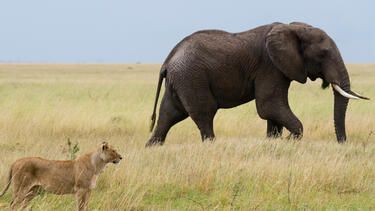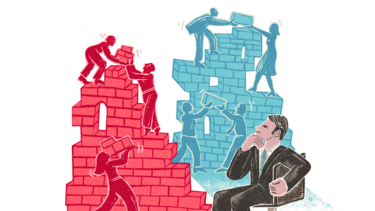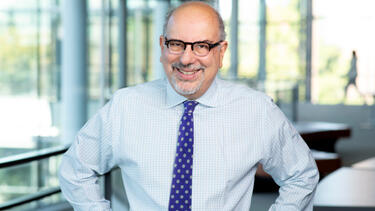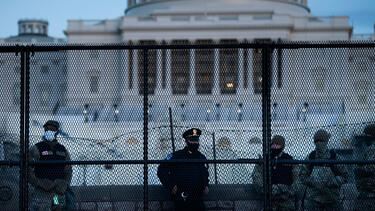All Insights Articles
How Big Investors Avoid Market Predators and Keep Trading Costs Low
Researchers have generally believed that as large institutional investors make bigger trades, their trading costs rise accordingly. Research from Yale SOM’s Tobias Moskowitz finds that they take a slow-and-steady approach to keep costs down and outsmart market predators.

Can Legalizing Cannabis Curb Deaths from Opioids?
A new study co-authored by Yale SOM’s Balázs Kovács uses new data to uncover a striking association: the more legal cannabis dispensaries there are in a given county, the fewer opioid overdoses.

How Firms Can Harness Internal Competition
A new study finds that pitting teams against each other is effective in clarifying the way forward. But once a decision is made about which path to pursue, everybody must rally around the chosen idea—and not look back.

The Practical Game Theorist
Prof. Barry Nalebuff extracts pragmatic insights from game theory to improve the practice of innovation, strategy, and negotiation.

A Peaceful Transfer of Power at Amazon
We asked Yale SOM leadership expert Jeffrey Sonnenfeld, author of a landmark study of CEO succession, how Amazon will be changed by the departure of its founder.

Will the GameStop Rebellion Last?
We asked Yale SOM’s Kelly Shue, an expert in behavioral economics and empirical corporate finance, to explain what the GameStop phenomenon might mean for the balance of power on Wall Street.

The Vaccines Bring Hope—and New Questions
A year into the COVID-19 pandemic, vaccines are a reality—and now we face the logistical and medical complications of inoculating a vast population while infection rages and the virus mutates. We asked Yale SOM’s Dr. Howard Forman, a public authority on the pandemic, for an update.

Can Business Leaders Be a Force for Democracy?
In the wake of the presidential election, Yale SOM leadership expert Jeffrey Sonnenfeld hosted three urgent discussions with top CEOs, where they discussed their concern about attempts to overturn the results and made a much-reported pledge to freeze donations to legislators who voted to reject election results.

A Key Factor in Well-Being: Others’ Apparent Wealth
Money may not lead to happiness, but according to a new study co-authored by Yale SOM’s Michael Kraus, our perceived wealth and status relative to others does affect how happy we are.

Business Leaders Are Deeply Concerned about Public Safety—and Democracy
At a virtual meeting convened by Yale SOM leadership expert Jeffrey Sonnenfeld in the wake of the attack on the Capitol, CEOs voiced worries and brainstormed ideas for how business can help strengthen democracy.
